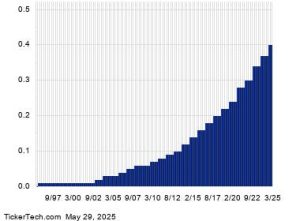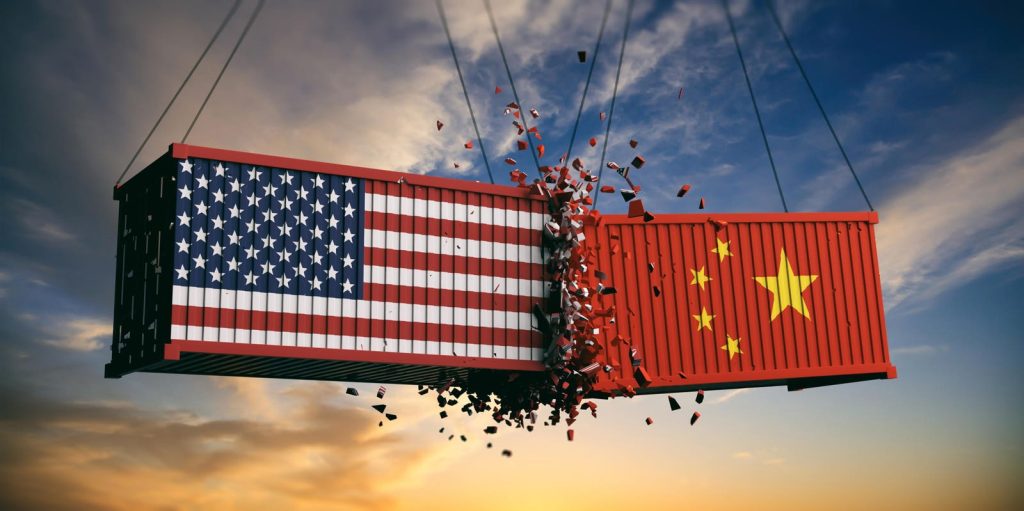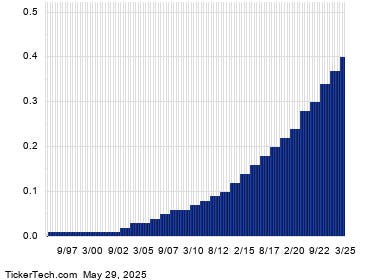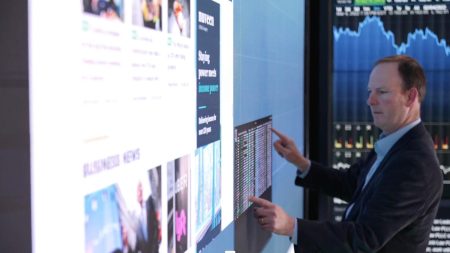The looming threat of new tariffs has cast a long shadow over the retail landscape, forcing businesses to grapple with the potential ramifications for their operations and consumers’ wallets. The proposed tariffs, targeting major trading partners, threaten to disrupt carefully calibrated business models and ignite a price war in an already competitive market. Retailers are scrambling to understand the full impact of these potential tariffs on their costs, and how to navigate the delicate balance of absorbing increased expenses versus passing them on to consumers, whose purchasing power is already under pressure. The uncertainty surrounding the actual implementation of the tariffs further complicates planning, making it difficult for businesses to make long-term strategic decisions. Despite the ambiguity, Chief Financial Officers have identified tariffs as their top concern heading into 2025, underscoring the significant potential for disruption.
The proposed tariffs represent a complex political calculus, with potential benefits for some domestic producers but significant downsides for consumers and many retailers. While touted as a mechanism to bolster American industry, economists warn that tariffs essentially function as a tax on consumers, driving up prices on a wide range of goods. This poses a significant political challenge, particularly given the simultaneous focus on combating inflation. The potential for these price hikes to alienate voters, especially those in lower and middle-income brackets, could significantly impact upcoming elections, leading some analysts to speculate that the tariffs are a negotiating tactic rather than a firm policy commitment. The conflicting pressures of supporting domestic industry, controlling inflation, and maintaining public support create a precarious balancing act for policymakers.
The apparel industry, heavily reliant on imports, stands to be particularly vulnerable to tariff hikes. With over 80% of clothing sold in the U.S. originating overseas, apparel companies face the difficult choice of absorbing increased costs, potentially eroding profit margins, or passing those costs onto consumers, potentially depressing sales. While some domestic manufacturers may experience a temporary boost from reduced competition, the overall economic impact is projected to be negative. Studies suggest that the benefits to domestic producers and increased tariff revenue will not offset the broader losses to consumers resulting from higher prices and reduced purchasing power. This negative impact is expected to disproportionately affect lower-income families, exacerbating existing economic disparities.
The potential implementation of tariffs is forcing retailers to re-evaluate their supply chain strategies. Diversifying sourcing options, exploring near-shore manufacturing, and renegotiating supplier contracts are among the tactics being considered to mitigate the impact of increased costs. Retailers are also exploring innovative approaches to product design and manufacturing, seeking to minimize the use of heavily tariffed materials and components. However, these adjustments require significant investment and carry inherent risks. Shifting sourcing can disrupt established relationships and potentially compromise quality control. Furthermore, the long-term effectiveness of these strategies remains uncertain, contingent on the final scope and duration of the implemented tariffs.
Different segments of the retail market are bracing for the potential impact of tariffs with tailored strategies. Luxury brands, benefiting from higher margins, may be able to absorb some cost increases or implement subtle price adjustments, justifying them with narratives of superior craftsmanship. Value retailers, catering to price-sensitive consumers, will likely focus on cost absorption, streamlining assortments, and maintaining affordability. Mid-market brands face a more delicate balancing act, potentially adopting a tiered pricing strategy with lower prices for essential basics and higher prices for more desirable items. Food retailers are exploring increased local sourcing and adjustments to packaging or sizing to manage costs. Electronics brands, accustomed to global supply chains, may attempt to preempt tariffs by accelerating orders and diversifying sourcing to alternative manufacturing hubs.
The uncertainty surrounding tariffs has also prompted some retailers to consider preemptively increasing inventory, purchasing goods at current prices before tariffs take effect. While this strategy could protect against future price hikes, it also ties up significant capital and risks overstock if consumer demand weakens or the tariffs are not implemented as anticipated. This potential overstock scenario could benefit off-price retailers like TJ Maxx and Ross, who specialize in acquiring and selling excess inventory from other retailers. Furthermore, the complexities of international trade regulations have created loopholes, such as the de minimis rule, which allows smaller shipments to bypass tariffs altogether. Online retailers, particularly those operating cross-border e-commerce platforms, are leveraging this provision extensively, further complicating the tariff landscape and raising concerns about regulatory oversight and product safety. Ultimately, the true cost of tariffs is often borne by the consumer, highlighting the importance of understanding the complexities of international trade and its impact on everyday purchases.










